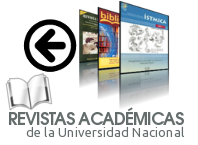Analysis of the articles of Derrida, Foucault and Agamben in a constructivist look
Keywords:
perception of Freud, Derrida, Civilization and Its Discontents, in which Freud, Giorgio AgambenAbstract
The first thing you should ask is why Derrida is interested in Freud to let us know your view of the files? What is in the concepts of Freud and psychoanalysis that make you think outside the psychological field? But in turn it is to look outside a phenomenon, this can lead us to new ideas of perception that invites us to wonder if an outside and an inside; that is, if the perception of the world, how we perceive it, is independence or dependence on the observer. New biological and psychological currents especially tell us that there is no independence between the observer and the observed, many constructivist current support these statements and give weight to these ideas that increasingly put head to perception and what we commonly know as the "perception of the world" .The main focus of this analysis is to realize if Derrida, with all his acute perception of Freud, psychoanalysis and especially the archives, we can clarify concepts and then see convergence.
References
Agamben. G (2000). Lo que queda de Auschwitz el archivo y el testigo homo sacer III. España: Exlibris 2005.
Carretero. M (1993). Constructivismo y educación. España: Edelvive S.A.
Coll. C (1997). El constructivismo en el aula. España: Graó S.A.
Derrida. J (1994). Mal de archivo. Una impresión freudiana. España : Editorial Trotta.
Feixas. G (2000). Constructivismo y Psicoterapia. España: Editorial Descleé de Brouwer. S.A
Foucaul, M (1970). La arqueología del saber. París: Siglo xxi editores S.A.
Maturana. H (1996). El sentido de lo humano. Chile: Dolmen editores.
Downloads
Published
How to Cite
Issue
Section
License
Bibliotecas provide immediate open access to their content, based on the principle of facilitating research to the public free of charge and free of charge to promote the global exchange of knowledge.
The journal Bibliotecas is a publication hosted by a public higher education institution, which is supported by public resources. Since its inception, the magazine has offered all its contents free of charge without any restriction on the rights of: reading, downloading and printing in full text. Works published in libraries may be analyzed, quoted and reproduced in whole or in part, mentioning the original source.
The journal Bibliotecas is licensed under the Creative Commons Attribution - Non-Commercial - Share Equal, 4.0 International license; therefore, it is allowed to: share, copy and redistribute the material in any medium or format.

Este obra está bajo una licencia Creative Commons Atribución-NoComercial-CompartirIgual 4.0 Internacional.








